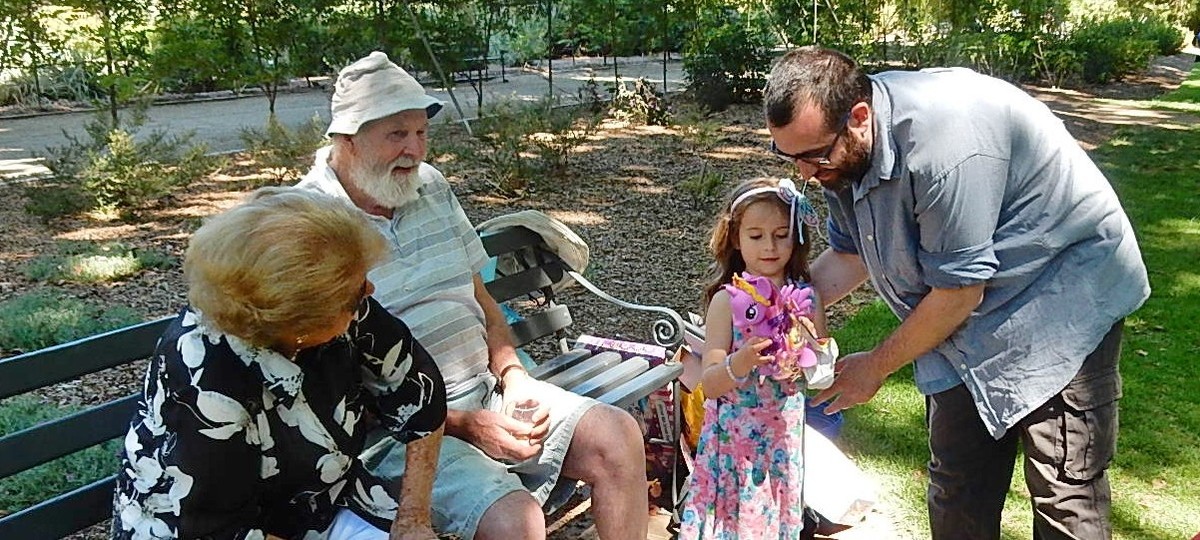
Why do grandparents and their grandchildren get along so well?
They share a common enemy.
OK. Old joke. But the truth is, they share another common enemy that is not a relative. It's risk. When it comes to kids and seniors alike, society's goal seems to be creating a zero-risk existence. This is as pointless and insulting for the older generation as it is for the younger.
"Surplus safety" is what Bill Thomas calls the cosseting that goes beyond being helpful and actually dampens the joy of human existence. Thomas is a Harvard-trained doctor who has always been shocked by the way we treat elders (a term he much prefers to "seniors"). He's the author of "What are Old People For? How Elders Will Save the World." And he founded the Green House Project, which replaces nursing homes with comfy, shared houses where everyone participates in making the evening meal. It's so simple, it makes me ill to think of elders wheeled into institutional cafeterias with no one asking anything of them, because they're not people anymore. They're more like packages.
Which brings us back to surplus safety — the kind that treats old people like fragile antiques to be preserved in climate-controlled comfort. Maybe that does lengthen ones' days on earth. But old people remain humans, and humans crave novelty.
Even if it involves a little risk.
"Risk is just the probability that things will turn out differently than expected," Thomas explains. "Now we use it mainly to mean downside risk — your car might burst into flames." But the upside of risk is that even when something bad happens, (maybe not quite as bad as your car bursting into flames) you are now faced with something new that you have to adjust to. For instance: You got lost? Now you have to find your way home. To do this, you may have to steel yourself to ask a stranger for directions. Once you do, you realize, "Hey — that wasn't so hard!"
For kids as well as elders, says Thomas, "You need to be exposed to risk to grow. You have to be put in a situation where things can turn out differently than you expect. When we make a fetish of the downside of risk, we also get rid of the upside of risk."
Helicopter parents try to remove all risk from their kids' lives, because "What if?" looms so large: "What if my child gets abducted on the two block walk to school?" Less recognized is the way we do the same thing to our elders, denying them the joy still left in life, because ... what if? "Don't go to Europe, dad. What if you get sick and you're away from your doctor?"
It's not that we deliberately want to stunt our elders. It's that we don't realize how vital novelty is to the soul at any age. "From a neurological point of view, the nervous system craves novelty," says Thomas. "Without novelty, the nervous system can't make new connections."
So, how can we give novelty back to our elders, if only to make sure that when we grow old no one is saving us from new experiences? Simple! We have to start believing in our elders, the same way helicopter parents have to start believing in their kids. We have to trust our loved ones to roll with some punches.
These days, Thomas travels around the country hosting a multi-media extravaganza called The Age of Disruption Tour. On stage, he asks audiences to see growing into elderhood as not that different from when they grew into adulthood from adolescence. It can be a time of growth, but it's not without risk.
Or at least, it shouldn't be.
Comment by clicking here.



 Contact The Editor
Contact The Editor
 Articles By This Author
Articles By This Author